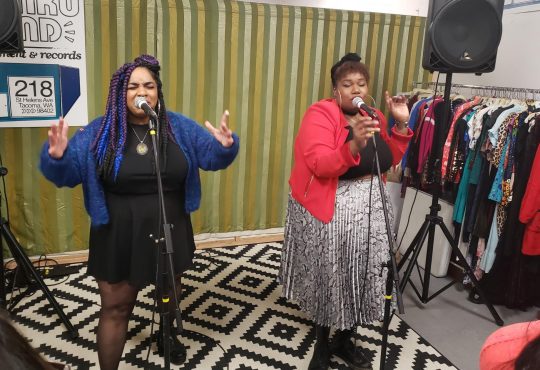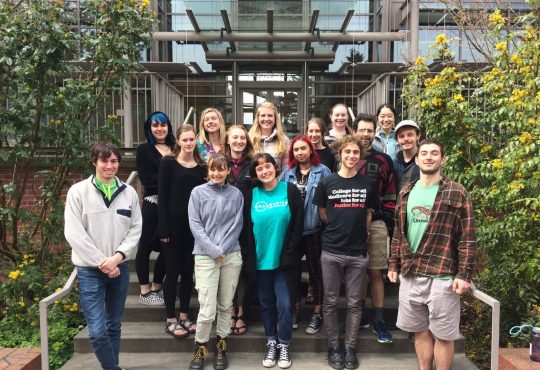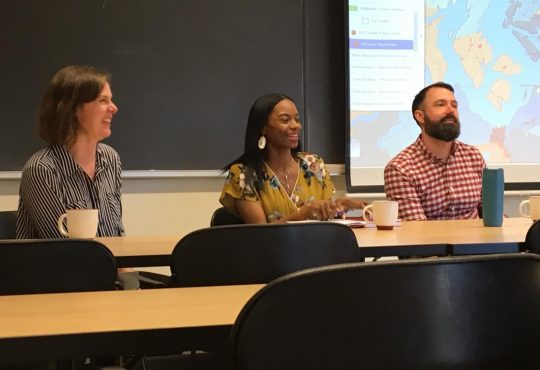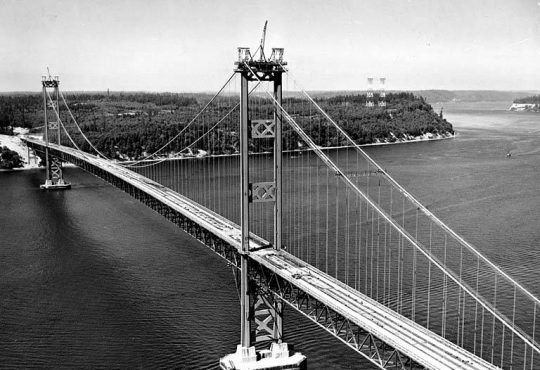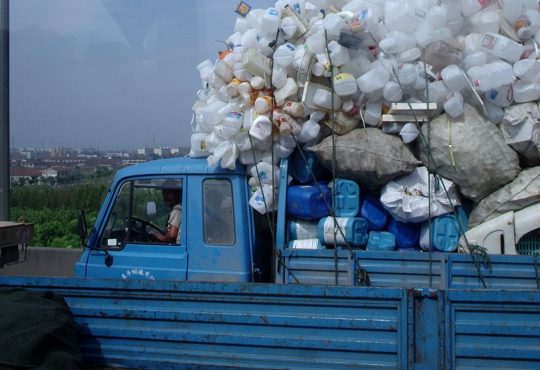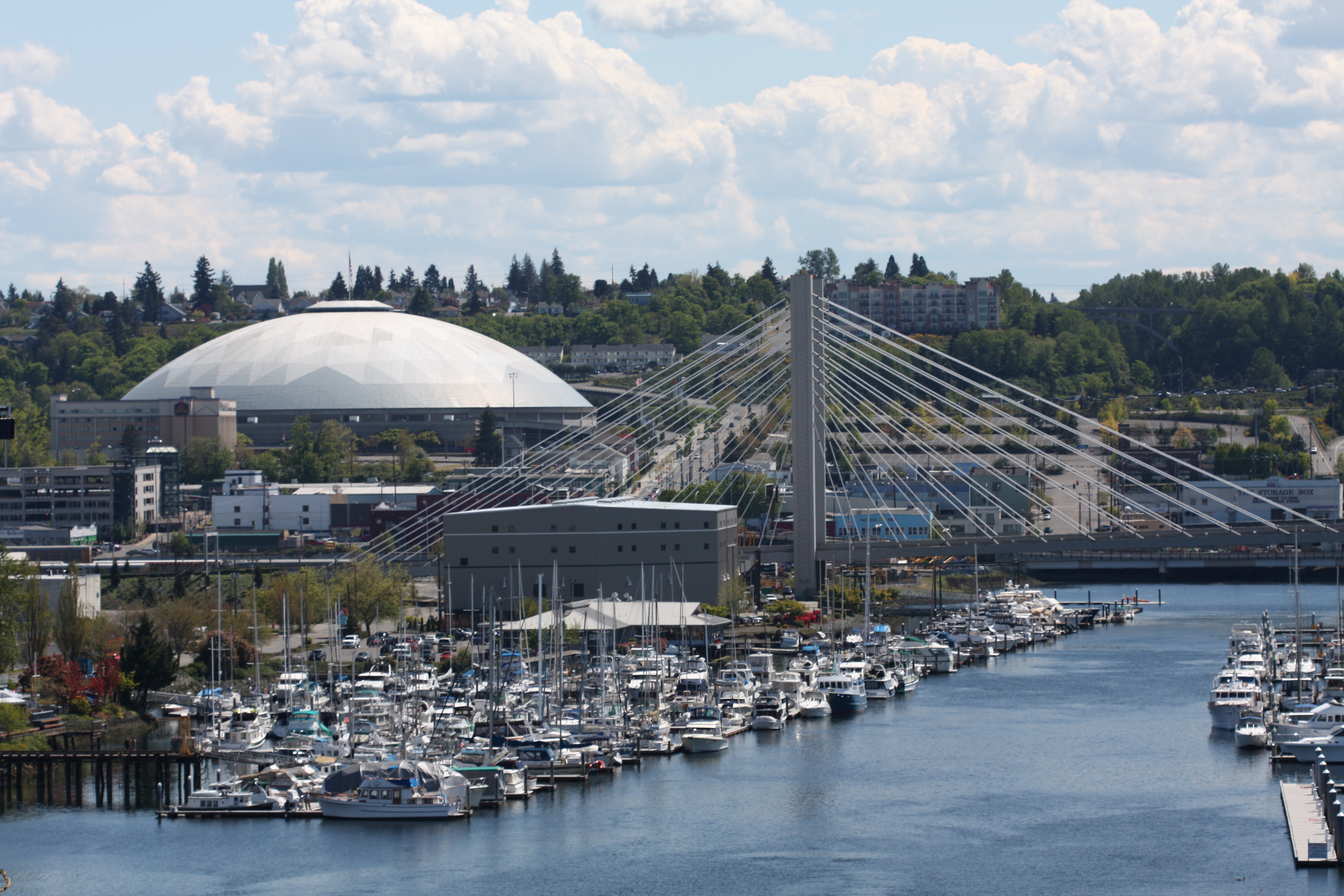
UPDATE : In order to allow for more community participation at the public scoping meeting for the Northwest Innovation Works proposed methanol plant, the Tuesday, Feb. 16 meeting has been rescheduled to Wednesday, Feb. 24 at the Greater Tacoma Convention and Trade Center ballroom (1500 Broadway). Doors will open at 5 p.m. for speaker sign-up and the meeting will begin at 6:30 p.m.
In four years, the Port of Tacoma could be home to the largest methanol production plant in the world. Northwest Innovation Works (NWI), a joint venture partnership with backers ranging from a Chinese government agency to British Petroleum, has proposed a $3.4 billion project to construct a gas-to-methanol plant in Tacoma. This facility would process natural gas into methanol, which would then be shipped to Asia and converted into olefin, a compound used in plastic containers, carpets and cell phones.
According to the Port of Tacoma website, the project is currently undergoing environmental review through the Washington State Environmental Policy Act, which will assess and analyze potential environmental impacts and propose strategies to minimize or avert negative impacts. The City of Tacoma is the lead agency on this review and will issue an Environmental Impact Statement once a full review of the project has been completed.
There are a number of potentially significant negative environmental impacts that will result from this facility. Citizens for a Healthy Bay, a non-profit organization focused on protecting the waters of Commencement Bay, has noted environmental concerns such as water demands, air pollution and waste products.
NWI recently announced that they have reduced their initial estimate of water usage by about 28 percent, from 10,000 gallons of water per minute to 7,200. Annually, this will add up to 5.9 billion gallons—for reference, the total annual residential water consumption in Tacoma is about 3.9 billion gallons—according to Tacoma Public Utilities statistics.
Similar plants around the world have experienced issues with air pollution, as the combustion of natural gas necessary in the production process gives off a variety of compounds. These include CO2 and other greenhouse gasses, carcinogenic pollutants and respiratory irritants, according to Citizens for a Healthy Bay.
The production process will also produce other waste products, such as zinc sulfide, and uses copper and nickel to convert natural gas into methanol. At this stage in the proposed project, NWI has not issued a public estimate on the quantity of waste products produced, nor how waste will be disposed of.
While the potential environmental risks of this project are evident, proponents argue that it will boost Tacoma’s economy, provide jobs and be a cleaner process than using coal or oil.
“I’m proud to see the Port of Tacoma and NW Innovation Works reaching another milestone for our state’s clean energy future,” Governor Jay Inslee said, according to an NWI media release on May 1, 2014. “Washington State is working to turn the global challenge of carbon pollution into new jobs and strong communities. This project at the former Kaiser site will boost our regional economy while eventually providing a needed supply of clean methanol fuel to Asia.”
NWI estimates that up to 1,000 jobs will be created at the peak of the facility’s construction, and it will employ about 260 workers and managers once the facility is operational, according to the Port of Tacoma’s website. While the entire project has been repeatedly framed as environmentally friendly and a move towards a cleaner future by NWI, elected officials and the Port of Tacoma, this rhetoric does not change the fact that there are significant environmental risks that could potentially affect everyone living in the South Sound region. Ultimately, the meager economic benefits offered by NWI do not outweigh the negative environmental impacts that are likely to accrue if this project gets approved.
I invite you to attend the final open house organized by the City of Tacoma where this project will be open for discussion among members of the community, along with its potential impacts and strategies to mitigate the entailed risks. This will occur on Tuesday, Feb. 16 at Meeker Middle School at 5:00 p.m.

